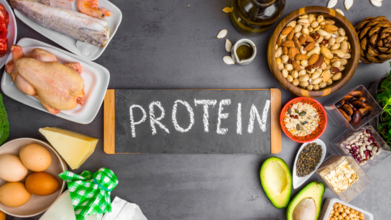- Health Conditions A-Z
- Health & Wellness
- Nutrition
- Fitness
- Health News
- Ayurveda
- Videos
- Medicine A-Z
- Parenting
- Web Stories
You Sprinkle It On Lattes, This Common Spice Could Be Interfering With Life-Saving Drugs

Credits: Canva
Cinnamon, the sweet spice sprinkled on your morning porridge, stirred into coffee lattes, or mixed into hearty stews may not be as harmless as it is seems, particularly for individuals living with chronic disease. Though this fragrant spice has gained a reputation as heart-healthy and blood sugar-friendly, emerging scientific research is now refuting that position. A new study led by the National Center for Natural Products Research (NCNPR) at the University of Mississippi finds that cinnamon — or, more specifically, its active compound cinnamaldehyde may be able to disrupt the body's ability to effectively break down drugs.
This medical breakthrough highlights an emerging issue: how naturally occurring substances and supplements may inadvertently undermine life-saving prescription medications. Here's what you should know.
Cinnamaldehyde is the naturally occurring substance that provides cinnamon with its unique taste and scent. It also is responsible for the spice's purported health benefits, such as anti-inflammatory properties and metabolic assistance. But, according to scientists, the same compound can accelerate the way your body metabolizes some medication, causing drug ineffectiveness — a troubling trend for individuals who are taking daily medications.
In the NCNPR research, scientists tried out how drugs were absorbed in a model gastric fluid, both with and without the inclusion of cinnamaldehyde. The findings were dramatic: the inclusion of cinnamaldehyde seemed to retard the absorption of drugs in the body. This implies drugs could be eliminated from the body too rapidly to have maximum effect, which would be hazardous for patients treating serious diseases.
Chronic Disease Patients More Vulnerable
Individuals with chronic diseases such as diabetes, hypertension, cancer, asthma, obesity, HIV, or depression should use caution when taking cinnamon supplements, says Shabana Khan, a lead scientist in the research. "By definition, supplements are not intended to treat, cure or reduce any disease," Khan stressed.
This risk is mostly relevant to those taking high amounts of cinnamon, like in capsules, powders, or oils sold as dietary supplements. Khan cautioned that excessive intake might speed up drug elimination from the body, which could undermine or even cancel out the therapeutic benefits of essential medications.
Not All Cinnamon Is Created Equal
A key subtlety of the study is the difference between various forms of cinnamon products. Amar Chittiboyina, Associate Director at NCNPR, explained that cinnamon oil, which is widely used in food and hygiene products, is not the same risk. Rather, it's cinnamon bark which sits on spice racks or in supplements — that is of concern.
Cinnamon bark, especially the Cassia type from southern China, is very high in coumarin, a naturally occurring thinning agent of the blood. Coumarin may raise the threat of bleeding, particularly in those people already on anticoagulant therapy such as aspirin or warfarin.
In contrast, Ceylon cinnamon commonly referred to as "true cinnamon" and originating in Sri Lanka has much lower coumarin levels and consequently presents a lesser risk. Nonetheless, even with Ceylon cinnamon, use is recommended cautiously when consumed in excess or combined with prescription medications.
The supplement world has long adopted cinnamon for its supposed virtues, from balancing blood sugar to reducing cholesterol and even enhancing brain health. Certain longevity specialists assert it can cut the risk of Alzheimer's by preventing the development of toxic tau proteins in the brain although conclusive human trials are still lacking.
Even with these possible benefits, the research highlights the need to know how bioactive compounds such as cinnamaldehyde work with the body. As Khan described, testing its "bio-accessibility, metabolism, and interaction with xenobiotic receptors" is crucial to determining its actual effect when taken with drugs.
Why Overconsumption May Cut Your Prescription's Effectiveness?
Taking too much cinnamon especially in supplement form can disrupt the way the body absorbs and processes prescription medication. The culprit is cinnamaldehyde, the primary compound of cinnamon, which stimulates receptors that speed up drug metabolism. This increased clearance can decrease the effectiveness of a drug, rendering it less potent in managing chronic diseases such as diabetes, hypertension, or depression.
Furthermore, Cassia cinnamon, which is widely available in supermarkets, has high coumarin content, a natural anticoagulant, which can interact with anticoagulant drugs in a dangerous manner. Though safe in moderate use, individuals on long-term medication should seek advice from healthcare experts before incorporating cinnamon supplements into their regimen.
Disadvantages of Daily Consumption of Cinnamon
Daily consumption of large amounts of cinnamon can result in a variety of health hazards. High levels of coumarin present in Cassia cinnamon can lead to liver damage or promote the risk of bleeding when taken with blood-thinning drugs. It can also cause allergic responses, hypoglycemia, or affect the manner in which the body metabolizes important medications.
The accumulation of cinnamaldehyde in excessive amounts over-stimulates detoxifying enzymes, thereby diminishing the efficacy of drugs. Additionally, regular consumption of cinnamon supplements without professional monitoring can result in long-term health implications, particularly in patients controlling chronic diseases such as heart disease or diabetes.
Safe Use of Cinnamon in Everyday Diets
Cinnamon can be a tasty and health-enhancing spice if consumed in moderation. A sprinkle of half a teaspoon of Ceylon cinnamon on oatmeal, tea, or smoothies every day is safe for most healthy people. Refrain from taking high-dose supplements except under the advice of a healthcare professional.
Use Ceylon cinnamon instead of Cassia to restrict coumarin consumption, particularly if you're taking medications such as blood thinners. Cooking with cinnamon oil is also safer since it has less coumarin. Be sure to check labels when purchasing supplements and speak with your physician if you already have health problems. The trick is thoughtful, moderate use—not megadoses.
Although sprinkling a pinch of cinnamon on your coffee or breakfast is unlikely to do any harm, researchers advise consumers, especially those with ongoing health conditions to have a second thought before reaching for high-dose supplements. Cinnamon already is known to interact with at least 47 medications, and new evidence indicates its impact may extend even further.
How Much Protein Is Too Much Protein?

Credits: Canva
Protein has earned a reputation as the building block of life, and for good reason. As one of the three essential macronutrients, alongside carbohydrates and fats, it plays a critical role in keeping your body functioning. From oxygen transport and immune defense to nerve signaling and tissue growth, protein is involved in nearly every system in your body.
But while it’s clear that protein is important, a question often comes up: Can you have too much of it? Let’s break down what the science says about protein requirements, and whether eating more than your daily share poses real risks.
How Much Protein Do You Really Need?
Your protein needs aren’t one-size-fits-all. They depend on several factors: your weight, age, physical activity, body composition goals, and overall health status.
The Recommended Dietary Allowance (RDA) for the average adult is 0.36 grams per pound (0.8 grams per kilogram) of body weight. This amount is generally enough to meet basic nutritional needs for most sedentary adults.
However, experts suggest that people who are physically active often need more, anywhere from 0.54 to 0.9 grams per pound (1.2–2 grams per kilogram) per day. Athletes may even require higher amounts to support muscle repair and performance.
Certain groups, such as pregnant or breastfeeding individuals, older adults, and people recovering from illness or injury, also have increased protein needs. For example, during pregnancy, the recommendation rises to about 0.5 grams per pound (1.1 grams per kilogram).
Are High-Protein Diets Harmful?
For years, concerns have circulated about the safety of high-protein diets, particularly regarding their potential impact on the kidneys, heart, and bones. But research suggests that many of these fears are unfounded — at least for healthy individuals.
Heart Health
Some worry that consuming too much protein, especially from animal sources, might raise the risk of heart disease. However, large-scale studies have not found a consistent link. One study involving over 12,000 adults found no association between animal or plant protein intake and heart disease risk. Similarly, reviews in 2020 and 2023 concluded that high protein intake was not connected to increased risks of stroke, cardiovascular death, or other heart-related conditions.
Bone Health
Earlier research hinted that high-protein diets might weaken bones by increasing calcium loss. Yet more recent evidence shows the opposite. A 2019 review of 13 studies found that higher protein intake — above the current RDA, was linked to stronger bones and a reduced risk of hip fractures. Since protein makes up over one-third of bone mass, adequate intake, alongside calcium and vitamin D, supports skeletal health.
If you’re thinking about ramping up your protein intake, the key is balance and individualization. While high-protein diets appear safe for most healthy people, your exact needs depend on your lifestyle, age, and health conditions.
Working with a registered dietitian or qualified healthcare provider can help you find the right amount for your body while ensuring your diet stays balanced with other nutrients. After all, protein is powerful, but it works best as part of a well-rounded eating plan.
Celebrity Nutritionist Shares 5 Signs Of Poor Diet

Credits: Canva
If you think “healthy eating” is just about protein shakes, cutting carbs, and stocking your fridge with probiotic shots, celebrity nutritionist Rujuta Diwekar wants to have a word with you. Known for guiding Bollywood’s biggest names, including Kareena Kapoor, Rujuta is famous for her practical, grandma-approved advice. In her August 11 Instagram post, she listed five signs your diet is not only unsustainable but also joyless. And her antidote is simple: good old home-cooked food.
1. Protein Overload
While protein is important, your diet should not look like a bodybuilding competition menu. You might do more harm than good. Rujuta warns that loading up on a single nutrient creates imbalance both on your plate and in your gut. If dal, sabzi, roti, and a bit of rice have been replaced with chicken breasts and protein bars, you are not nourishing yourself; you are overdoing it.
2. No Spice, No Fun
Somewhere along the way, you ditched your daily pickle, chutney, or masala because someone on the internet said, “Seasonings cause water retention.” Now, your evenings are spent rummaging through cupboards looking for anything salty, spicy, or sweet to kill the craving. Rujuta’s point is that flavour is not the enemy. A little tadka in your dal or a sprinkle of chaat masala on your salad can actually make your meals more satisfying and keep late-night snack attacks at bay.
3. Portion Panic
You start cutting back on roti. Then you take only half a spoon of rice. Next thing you know, you are eying your own fruit bowl suspiciously. This “portion paranoia” often does the opposite of what you intended: it strips meals of comfort and turns eating into a stress sport. Rujuta reminds us that eating enough is essential, not indulgent. Confidence does not come from calorie counting; it comes from nourishing your body so it works with you, not against you.
4. Festivals Feel Like Cheating
If modak during Ganpati, sheer korma on Eid, or Christmas cake feels like a guilty transgression, your diet is robbing you of more than calories; it is stealing your joy. Food is culture, connection, and celebration. The minute your “diet plan” turns family gatherings into anxiety traps, it is no longer healthy. Rujuta says that food is culture, community, and cuisine. It is a wholesome way to live.
5. Gut Health Overload
Once upon a time, a happy stomach meant you ate on time and enjoyed your meals. Now, you have got a probiotic drink, a prebiotic pill, and some digestive tonic, yet your gut feels perpetually off.Ironically, over-focusing on “gut health” can stress your digestive system further. Sometimes, what your stomach really needs is not a lab-formulated elixir but a home-cooked khichdi and curd.
Why Home-Cooked Food Wins Every Time
Rujuta’s core philosophy is deceptively simple: eat what you can make at home, using local, seasonal ingredients, without obsessing over macros and metrics.Why? Because home-cooked food naturally ticks all the boxes; it is balanced, economical, and emotionally grounding. It does not just help you lose weight; it helps you stop making weight loss the centre of your life.
A plate of fresh roti, ghee-topped dal, sabzi, and a little pickle is not just dinner; it is tradition, nutrition, and comfort, all in one. Plus, it is far cheaper than imported almond flour or cold-pressed mushroom juice.
Rujuta’s five red flags are a reminder that eating well should add to your life, not shrink it down to a list of forbidden foods.
What Happens To Your Skin, Joints And Gut After 30 Days Of Taking Collagen?

Credits: Canva
Collagen has long been a nutritional superhero, cloaked in homemade bowls of chicken soup and Jell-O's wiggly texture. Now it's in the spotlight—mixed into morning coffee, blended into smoothies, or found in capsules because it's said to promote young-looking skin, supple joints, and even a healthier digestive tract. But if you take collagen daily for a month, what can you reasonably expect?
Collagen is the most widely found protein in the human body, and it forms the structural skeleton of your skin, cartilage, bones, and connective tissue. It consists largely of three amino acids—proline, glycine, and hydroxyproline—and functions like the skeletons that keep you assembled together.
Although your body naturally makes collagen, production decreases with age, beginning as early as your mid-20s. The consequences? Wrinkles, loss of skin elasticity, joint stiffness, and bone loss. Collagen supplements try to fill in the void, delivering your body with peptides that can potentially trigger it to make its own collagen.
The supplements themselves are generally derived from bovine (cow), porcine (pig), or marine (fish) sources. After processing, they become taste-free powder, capsule, or liquid that's convenient to incorporate into your diet.
Skin
One of the largest selling points of collagen supplementation is smoother, more youthful skin. The research supports the notion—albeit with qualifiers. A 2021 International Journal of Dermatology review discovered that consuming collagen for 90 days increased hydration and elasticity, with some subjects reporting fewer wrinkles than those who didn't supplement.
Collagen peptides also seem to set off the skin's fibroblasts (cells that make collagen) to increase production. After a while, that could mean plumper, tougher skin. Just remember that everyone is different, and the results come slowly you won't wake up with a "filtered" complexion after four weeks.
Also Read: How To Tell Your Skin Barrier Is Damaged? Step-By-Step Guide To Rebuilding Your Skin’s Defenses
Joints
Collagen is not all about looks—collagen is also very important for the health of joints. Type II collagen, specifically, is the main building block of cartilage, the padding tissue that lets joints glide smoothly.
There are some studies that recommend a daily consumption of collagen to decrease pain and function in individuals with joint problems. In Amino Acids, a review in 2021 indicated that 5 to 15 grams per day of collagen peptides improved participants' comfort and mobility. Collagen may also aid in quicker recovery when coupled with resistance exercise in people who are active or have been injured.
Bones
Bone density tends to decrease naturally with age, particularly in women after menopause. Collagen composes approximately one-third of bone weight, contributing to the bones' elasticity and strength. There has been some evidence—like a 2021 study published in the Journal of Bone Metabolism—that collagen supplements could increase bone mineral density and stability in postmenopausal women.
Although you will not experience this advantage in 30 days, sustained use might help make a difference in bone density, particularly when combined with calcium, vitamin D, and weight-bearing exercise.
Gut Health
Collagen has amino acids such as glycine and glutamine that can potentially keep the gut lining healthy. This is significant because an intact gut barrier is inflammation-reducing and helps with digestion. Although human studies are ongoing and preliminary, anecdotal evidence is that daily collagen consumption can alleviate bloating or discomfort in some individuals.
Hair and Wound Healing: Secondary Benefits
Your hair consists mainly of keratin, and that depends on the amino acids in collagen. Supplementation may be aided by some research, such as a 2022 review in the International Journal of Molecular Sciences, to support hair thickness and hair growth. Likewise, collagen's function in skin structure would make it accelerate wound healing—a benefit backed by evidence in burn victims.
Why Collagen Is Not A Magic Portion?
Even with the encouraging results, collagen is not a panacea. "Most physicians aren't aggressive about prescribing it, because the data just isn't there," says Dr. Peden, an orthopedic expert. The studies are encouraging but still in the making, and outcomes vary with diet, lifestyle, and genetics.
That is the reason why professionals suggest looking at collagen as part of a holistic health strategy that incorporates nutrient-dense foods, proper exercise, sun protection, and adequate sleep.
How to Choose and Use Collagen?
Since supplements aren’t regulated by the FDA, quality matters. Look for products that are independently verified, free of unnecessary fillers or sugars, and sourced from reputable companies. The most common types to look for are:
Type I and III – Best for skin, hair, and overall healthy aging.
Type II – Most linked with joint health.
Powders are the most convenient, but capsules are a good alternative if you don't want to mix powders in water. Although there is no traditional daily recommended dose, the majority of studies utilize 5 to 15 grams per day.
How To Consume Collagen Naturally?
Even when supplementing, lifestyle choices count:
- Consume protein foods such as chicken skin, bone broth, and whole fish to offer building blocks for collagen.
- Take adequate vitamin C from fruits and vegetables such as bell peppers, strawberries, and citrus to support collagen production.
- Exercise regularly—both resistance and aerobic training can encourage collagen synthesis.
- Shield your skin from UV, don't smoke, and restrict alcohol.
What Happens When You Take Collagen For 30 Days?
If you begin daily collagen, you can expect subtle improvements in your skin—slightly improved hydration or texture at the end of the first month. Joint pain may start to subside, particularly when combined with strength training or physical therapy.
More pronounced effects, particularly for skin elasticity, bone health, or hair growth, usually take 8 to 12 weeks or longer of regular use. Collagen is a long game, not a Band-Aid.
Collagen has its hype for a reason—it is involved in skin elasticity, joint ease, and overall structural well-being. Not everybody will notice earth-shattering shifts in 30 days, but regular usage, particularly in conjunction with healthy behaviors, can complement your body's natural repair and maintenance capabilities.
Disclaimer: This information is for educational purposes only and is not a professional medical consultation, diagnosis, or treatment. Always consult a qualified healthcare provider before taking any supplement.
© 2024 Bennett, Coleman & Company Limited

